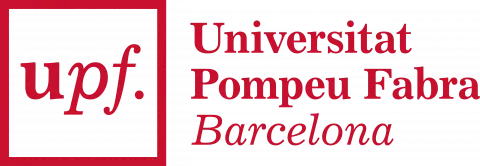Tags
Subject
sbjinv = subject inversion: the subject occurs after the verb.
- Van anar en taxi, els va acompanyar el taxista. (Cat)
sbjinv_deacc = subject inversion with deaccented subject in a declarative sentence.
- A questo punto dopo un po’ se n’accorge, il sassofonista. (Ita)
sbj-sep = subject separation: separation of the (preverbal) subject from the verb by sentential adverbials or other material that has scope over the entire clause
- però la rana come al solito riesce a infilarsi nella_ nella situazione (Ita)
nsbj = null subject (the subject is not expressed)
nsbj_c = null subject (the subject is not expressed) in an coordinate clause
arbnsbj = arbitrary null subject
- Y un día a este niño le regalaron pues una caja muy grande (Spa)
Other arguments of the verb
narg = null argument: in copula sentences or other contexts where an argument is missing.
ht = hanging topic: An NP in the left periphery of the clause with no marking of grammatical function co-referring with a clitic pronoun, a tonic pronoun or a demonstrative inside the clause, marking its grammatical function.
- La rana grande, la situación no le gustaba mucho.(Spa)
clld = clitic left dislocation: An argument in the left periphery of the clause coreferring with a clitic inside the clause. The tag refers also to todo (Spa) / tot (Cat) which are obligatory resumed by a clitic, independently from their position in the sentence.
- Evidentemente al niño le disgustó mucho. (Spa)
- Al hombre se le cae el café.(Spa)
- Todo se lo dan en comida para ranas. (Spa)
ld = left dislocation: A left-dislocated argument without clitic resumption. The subject is left dislocated if another argument separates it from the verb, as below:
- Esta a mí no me quiere nada bien. (Spa)
The tag is used also when the displaced argument is a quantifier (see algo below):
- y como es verde, algo podrá hacer. (Spa)
clrd = clitic right dislocation: An argument dislocated to the right periphery of the clause co-referring cataphorically with a clitic pronoun inside the clause.
- El que passa és que el gat ja l’ha vist, a la granota. (Cat)
- Y le dijo, a la rana grande... (Spa)
cldbl = clitic doubling. The difference with clrd is in the intonation: in cldbl, the verb and the argument are within the same intonational contour, and either the whole VP or the argument are in focus.
- Entonces la tortuga lo ve y se lo dice al niño. (Spa)
- Se’n va a l’habitació amb la granoteta i tots dos li expliquen la història al gosset i la tortuga. (Cat)
rd = right dislocation. The same as clrd, but without a resumptive clitic. A subject is right dislocated if another argument separates it from the verb:
- y le_ muerde_ la la pata-- el anca a la otra ranita, la rana grande. (Spa)
obj-sep = separation of the (postverbal) direct object from the verb
- A este niño le regalaron pues una caja muy grande (Spa)
- Y cogió en su mano a la ranita pequeña (Spa)
deacc = deaccenting. A subject is marked as deacc (and not rd) in all cases in which there is no intervening material between the verb and the subject.
- Però la mare està pendent de la revista i no sap a qui li està donant el biberó. El nen no beu res, del biberó (Cat)
- E Giovanni organizza una bella festa, per questa rana e la presenta a tutti i suoi amici, ma Lara non è molto simpatica, con questa rana (Ita)
- La mare està llegint una revista de moda i el nen està allà dintre al cotxet – que està disfressat, aquest nen (Cat)
focfr = focus fronting: A fronted element bearing focal stress.
- veu una dona que està amb un cotxet; així de lluny la veu. (Cat)
- A questo punto anche Lara è dispiaciuta (Ita)
Types of clauses
pres = presentational
- Al restaurant hi havia uns músics (Cat)
- Hi havia una vegada un nen... (Cat)
cleft = cleft sentence
- Era ese sapo que_ les había querido hacer algún susto – (Spa)
- ma non è solo lui stavolta a sgridarla – (Ita)
- es pensava que havia sigut ell de manera intencionada qui li havia posat la granota al plat (Cat)
pscleft = pseudo-cleft sentence
- Lo que el sapo no había visto era que... (Spa)
- Pero lo que el niño no vio, es que cuando salieron del muelle, la tortuga grande dio un salto (Spa)
- La que también se alegra en este caso es la rana grande (Spa)
- Lo que produce es el asombro de los músicos (Spa)
inv-pscleft = inverted pseudo-cleft sentence
- es la rana la que decide_ beber (Spa)
- es el padre el que le riñe al niño (Spa)
pass = passive construction
impers = impersonal construction
Types of verbs
impersv = impersonal verb
Parentheses { }
They are used for free comments when the annotator finds some interesting phenomenon that cannot be marked with any of the labels above.
The annotator’s initials are in front of the comment.
E.g.: {LB: contrastive context} ; {SB: Ellipsis} ; {JC: Shift} ; etc.


